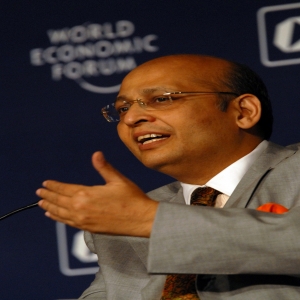
.png) Joseph Maliakan
Joseph Maliakan
.jpg)
The counsel for the State of Tamil Nadu, Abhishek Manu Singhvi, on Thursday, August 28, 2025, in a very significant submission before the Constitution Bench of the Supreme Court, headed by the Chief Justice of India, BR Gavai, hearing the Presidential Reference, said that "Governor cannot act like a super Chief Minister."
Singhvi pointed out that the governor is a part of the legislative process, but he is not part of the legislation of the State. He is also not a legislator. He may have a role in the legislative process, but that role is subject to the aid and advice of the Council of Ministers; however, he cannot have a dominating role over the State Executive or Legislature.
Even though Article 168 postulates that the Legislature of a State would comprise the governor, the governor is not assigned any legislative responsibility in any house of the State Legislature, Singhvi added.
Wondering how the governor's be the last word in the enactment of a Bill, Singhvi maintained that in responsible governments, there is no room for gubernatorial discretion. General discretion to the governor would create chaos.
The power to assent, withhold and return Bills by the governor is only to facilitate lawmaking in the State. A Bill is referred to the President by the governor if the State itself has doubts about the repugnancy of certain proposed provisions. Here again, the governor has a limited discretion to refer a Bill.
Article 163 does not give the governor a general discretionary power to act against or without the advice of his Council of Ministers. Once it is clear that the role of the governor is titular, nominal, and constitutional, it follows as a natural corollary that the governor wields independent discretion only in a very limited scope of situations, which are rare and specified.
Article 163, as interpreted by the court in a plethora of judgments, states that the governor shall act exclusively on the "aid and advice" of the Council of Ministers, Singhvi argued. Reading out excerpts from the Justice Punchhi Commission Report, which adopted observations by Dr BR Ambedkar, Singhvi said, "The Governor under the Constitution has no functions at all." The governor cannot, in any particular circumstances, overrule the Ministry.
In this context, quoting Justice VR Krishna Iyer on how Indian democracy works not on the wishes of a "single summit soul (President / Governors of States) whose deification is incompatible with the basics of our political architecture," but depends on the functions of the Ministries which answer to the Legislature, which in turn stands before the people.
Referring to arguments by the Solicitor General, Tushar Mehta, Singhvi said that, "the SG for the Union, has given doomsday scenarios in which the governor can exercise discretion. In our 75 years, with all its twists and turns these scenarios have not happened. Hypothetically, the sky may fall on our heads. Constitutional interpretations cannot be done in the backdrop of doomsday predictions," Singhvi submitted.
The executive powers of a State are wielded by the Council of Ministers and exercised by it through and in the name of the governor of the State. The governor does not have any independent discretion in the discharge of their Constitutional functions. This is in consonance with the principles of democracy and federalism, both of which are part of the basic structure of the Constitution. The role of the governor is one of a "friend, philosopher and guide," Singhvi added.
The Governor and the President are titular heads, functioning within a federal parliamentary form of government, bound by their respective state and central councils of ministers, with no discretion in executive decision-making, except where explicitly conferred by the Constitution in a few rare situations.
There is strong material, especially in Shamsher Singh and Nabam Rebia and also in at least three speeches in the Constituent Assembly by Dr BR Ambedkar, Mr Krishnamachari and Mr Brajeshwar Prasad, to conclude that all three options exercised by the Governor under Article 200- assent to a Bill, withholding assent therefrom, or reserving the Bill for Presidential consideration - are intended only to facilitate lawmaking by the Council of Ministers Singhvi submitted.
The Solicitor General argued that the governor does not represent the Union of India. He represents the President. But the CJI countered him and said, "How do you say he does not represent the Government of India? The government's executive authority vests in the President."
The Constituent Assembly debates say he (the governor) is a vital link between the Centre and the State. In the debate about whether a Governor should exist or not, the resolution was found to be that the governor must serve as a vital link between the Centre and the States, the CJI pointed out.
In this context, the SG asked if, if the governor grants assent to a Bill, can someone move the court against the assent. The CJI replied, saying once a Bill is assented to, it becomes law. "Common man can challenge the contours of the law."
The CJI reminded the SG that here the reference is not about assent, but about the situation of the governor sitting on bills for time immemorial, especially when the debates of the Constituent Assembly showed that the original intention was that "governors must decide on Bills within six weeks."
Earlier, on August 21, the CJI BR Gavai had asked the Union government if the Supreme Court is supposed to suspend its role as the "custodian of the Constitution" and sit powerless while governors make the competent state legislature defunct and thwart the democratic will of the people by sitting on bills for "years" together?
The Chief Justice, in this context, wondered how anyone could justify the Tamil Nadu Governor keeping the State Bills pending for almost four years without even offering an explanation.